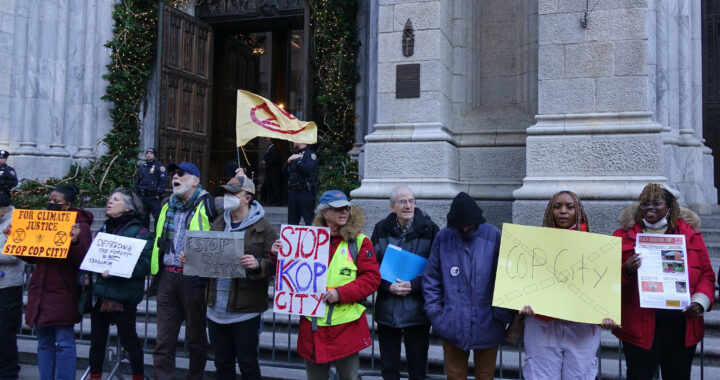Cracks in the Prosecution: “Stop Cop City” Protestors Face Precarious RICO Charges in Atlanta
by Patrick Wilson
Atlanta, GA – A legal battle of unprecedented proportions is unfolding in Georgia, where 61 individuals associated with the “Stop Cop City” movement face sweeping charges under the Racketeer Influenced and Corrupt Organizations (RICO) Act. This controversial application of a law traditionally reserved for organized crime has ignited a firestorm of debate, raising concerns about free speech, the right to protest, and the very foundations of democratic dissent.
Contested Terrain: The Battle Lines of “Cop City”
The Atlanta Public Safety Training Center, nicknamed “Cop City” by its detractors, has been a flashpoint for controversy since its inception. Environmentalists and social justice activists raise concerns about the project’s environmental impact, potential for militarized police training, and displacement of marginalized communities. Protests have been multi-faceted, ranging from peaceful demonstrations to clashes with police, with accusations of property damage and assault on both sides.
RICO’s Heavy Hammer: A Law Out of Place?
In August 2023, the Georgia Attorney General’s office dropped a legal bombshell, leveling RICO charges against the 61 individuals. The indictment paints a chilling picture of a coordinated “criminal enterprise,” alleging acts of vandalism, arson, and even domestic terrorism. However, critics fiercely contest this narrative, arguing that the evidence is flimsy, the accusations speculative, and the very application of RICO to protest movements a dangerous precedent.
A Case Built on Sand? Examining the Cracks in the Prosecution’s Argument
Several fundamental flaws weaken the prosecution’s case, casting serious doubt on its validity:
- Strained Interpretation of RICO: The statute requires proof of a continuous criminal enterprise, a standard legal experts argue is ill-suited to the diverse and often spontaneous nature of the protests. Connecting individual acts to a larger conspiracy is proving difficult, with accusations often based on circumstantial evidence and tenuous links.
- Chilling Effect on Dissent: The mere threat of lengthy RICO sentences for protest activity casts a long shadow over the First Amendment right to dissent. This chilling effect could potentially stifle legitimate activism under the guise of national security.
- Overreach and Questionable Motives: Critics point to the unprecedented use of RICO against protesters as politically motivated, aimed at silencing dissent and quashing a growing social movement. This raises concerns about the potential for abuse of a powerful legal tool.
An Uncertain Future: A Verdict Looming in the Fog
The legal battle surrounding “Stop Cop City” is far from over. Pre-trial hearings are ongoing, and legal challenges are expected. The outcome could have far-reaching consequences, not only for the fate of the 61 individuals but also for the future of protest movements nationwide and the interpretation of the RICO statute.
Public Scrutiny and Mounting Disquiet
The case has garnered national attention, drawing scrutiny from legal scholars, human rights groups, and even politicians across the political spectrum. Public opinion polls suggest a growing unease with the use of such a heavy-handed legal tool against protesters, raising questions about the balance between security and civil liberties.
Conclusion: A Precarious Path Ahead, But Cracks Offer Hope
While the ultimate verdict in the “Stop Cop City” case remains uncertain, the cracks in the prosecution’s argument are becoming increasingly visible. Whether the charges ultimately hold up or crumble under judicial scrutiny, the case has already ignited a critical conversation about the limits of state power, the right to dissent, and the very foundations of a free and democratic society. The outcome will not only determine the fate of the 61 individuals but also set a precedent for future protest movements and establish the boundaries of free speech in America. The path ahead remains precarious, but the growing cracks in the prosecution’s case offer a flicker of hope for those fighting for environmental justice, social change, and the right to peacefully express dissent.
** This piece was created with the help of ai.
